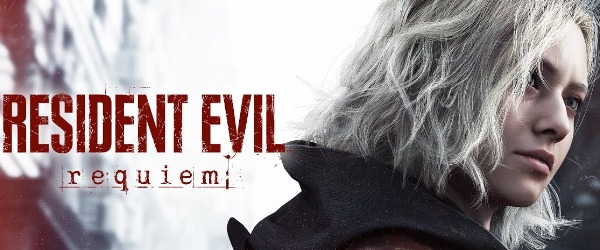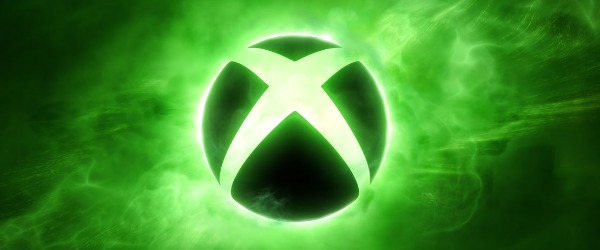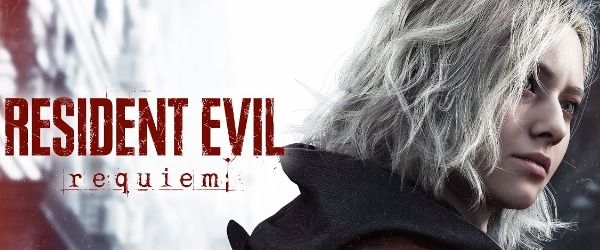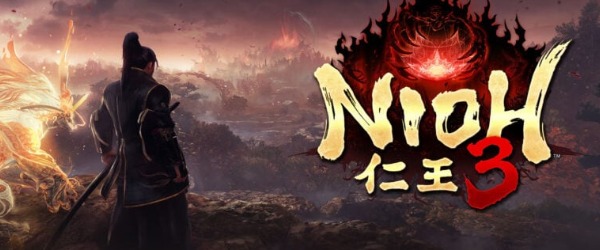
Greatest Video Game Composers: Martin O'Donnell - Article
by Taneli Palola , posted on 19 February 2016 / 8,388 ViewsYou can often get a good idea of the kind of game you're about to play by simply listening to its music. Music can often give you a sense of the game's tone and atmosphere from the first few notes. Such music is often the work of composers who have the ability to delve into the core of a game to find out what makes it unique, and then use their music to bring this uniqueness to the forefront. They understand the game's soul and how to make other people see it through music. One of those composers is Martin O'Donnell.
O'Donnell is a comparatively new face to the video game scene. He didn't get his start composing music for games until the late 90s, but his interest in the medium goes back a bit further. While having already been something of a video game enthusiast, it wasn't until he heard the soundtrack to Myst in 1993 that he truly realized the potential of video game music.
O'Donnell eventually became friends with the game's developers - Rand and Robyn Miller - and after some time was asked to handle sound design for their next game, Riven: The Sequel to Myst. While he didn't actually compose any music for the game, he produced a huge collection of ambient sounds and other effects for the game. Afterwards he became intent on becoming a video game composer as he found the process extremely satisfying and fulfilling.
He would soon come into contact with a game developer called Bungie, and sought to get hired by them after playing some of their earlier games. It wouldn't take long for O'Donnell to start working on his first video game score for the developer, and in 1997 Myth: The Fallen Lords became the first game of theirs to feature his work. He would return the very next year to compose the soundtrack to the game's sequel, Myth II: Soulblighter. These soundtracks are already a great indication of the type and quality of music O'Donnell would create in the future. This was also O'Donnell's first collaboration with Michael Salvatori. Over the years the two would work together on a number of projects, including most of the Halo series.
After Myth II O'Donnell's next work was for a game called Septerra Core: Legacy of the Creator. This game still boasts the only soundtrack by O'Donnell that was for a game not made by Bungie, although this is likely to chance in the near future due to his less-than-amicable split with the developer in 2014.
During the making of Septerra Core: Legacy of the Creator O'Donnell met Steve Downes, who would later become the voice of Master Chief in the Halo series based on O'Donnell's recommendation. Septerra Core: Legacy of the Creator's soundtrack is also notable for yet another reason - during the game's development O'Donnell's studio burned down to the ground, almost destroying a lot of the work he had already completed for the game.
After Myth II Bungie once again approached O'Donnell to work on two of the developer's upcoming projects. The first of these was a futuristic third-person action game called Oni, which released in 2001. It ended up being a fairly unremarkable game, receiving generally average reviews. However, the game did have certain clearly positive aspects as well, and in my opinion the music is one of them. At the very least, it definitely has a very different style compared to most of O'Donnell's other work.
The second of these two projects would catapult both Bungie and O'Donnell to new heights. This project would eventually become Halo: Combat Evolved. It's hard to overstate the importance this single game held for Microsoft's original Xbox. Without Halo it's quite possible that the Xbox would have been Microsoft's first and last foray into the console market. O'Donnell was tasked with creating the soundtrack for the game, and came up with one of the best overall scores in modern gaming. I would go as far as to argue that the Main Theme to Halo was an important factor in the game's success and overall memorability.
After Halo's near overnight success a sequel was almost immediately greenlit and put into production. Naturally, O'Donnell returned to compose the score for the next game in the series as well. Halo 2 would be released in 2004, three years after the original, once again to critical acclaim. It's arguable which game of the first two had the better soundtrack, but both are of undeniably high quality. The Main Theme is naturally the most recognizable track, but the scores are filled with excellent music that features a very distinct sound that fits Halo's somewhat bleak story. Of course, there are many suitably epic pieces thrown into the mix as well.
Bungie was focusing all its efforts on developing the series further as the demand for Halo was clearly huge. As such, it wasn't a huge surprise when they announced Halo 3 in 2006. As with the previous two games O'Donnell was once again responsible for creating the music for the game. The game was released in 2007 for the Xbox 360 and eventually became the most successful entry in the series; a distinction it still holds today.
The soundtrack for the game feels like a natural continuation of the first two scores, containing enough new elements to keep things fresh while at the same time retaining enough of what made the first two scores great so as to not distance it too far from the series' roots. O'Donnell was once again able to delve deep into the game's core and bring it out through his work. Halo 3 was the debut of the series on a new console generation, and it had to deliver. Fortunately for both Bungie and Microsoft it did, and once again one important factor in the game's success was the highly acclaimed music. Naturally there are many other things that make a game great, but music has the ability to amplify the quality of a game in many subtle ways.
At this point Halo was already one of the biggest franchises in the industry. It seemed like both Bungie and O'Donnell were tied to the franchise for the foreseeable future. After Halo 3 Bungie began working on side stories for the series. The first of these was Halo 3: ODST, a much smaller scale game compared to the rest of the series but also a distinctly darker entry. This time O'Donnell decided to create a much more subdued and intimate score for the game, in comparison to the more bombastic and epic music of the previous games.
The soundtrack to ODST shows off O'Donnell's versatility as a composer. It boasts a very Jazz-influenced sound, which works well to compliment the game's almost detective story-like atmosphere. After ODST he moved on to work on yet another game in the series, Halo: Reach.
Halo: Reach's story was similarly dark, although it was less intimate than ODST, and O'Donnell created a soundtrack that reflected this difference. The soundtrack is - for lack of a better word - grittier than its predecessors, although there are still many tracks in there to remind you of the previous games as well.
Halo: Reach would end up being the last game in the series developed by Bungie, and the last Halo game for O'Donnell too. Bungie had become an independent company a few years prior and wanted to work on new projects. The developer went on to announce a 10-year publishing deal with Activision for an ambitious new project called Destiny.
O'Donnell was once again contracted to create music for Bungie's upcoming game, along with a number of other people. One of these people was, of course, Paul McCartney, and O'Donnell worked extensively with him on Destiny's soundtrack for nearly two years.
Unfortunately, O'Donnell would ultimately be fired from Bungie in the middle of the game's development process, which brought the lengthy, lucrative relationship between the two to an end. At the very least the soundtrack had already been finished at that point, so the split didn't have an adverse effect on the game's music. Indeed the only slight criticism I have of Destiny's soundtrack is that the music is a bit too much like Halo's.
O'Donnell's departure from Bungie was less-than-amicable and ultimately resulted in him successfully suing the developer. Afterwards both parties kind of just moved on, with Bungie focusing on its burgeoning franchise in Destiny, and O'Donnell founding his own video game development studio, Highwire Games.
This studio has already announced its first game, which is a PlayStation VR exclusive title called Golem. As expected, it features music from O'Donnell, although we've only gotten a short preview of it in the announcement trailer, so it's tough to say much about it at this point in time. However, past experience with his work makes me fairly optimistic about the game's music. How the game itself will turn out is another thing entirely.
Martin O'Donnell's body of work may not be as extensive as many other composers working in the industry - in his nearly 20 years of working on video game music he has composed music for only 10 different games, with Golem set to be number 11 once it releases, which is a rather leisurely work pace in an industry where some composers create numerous different scores every single year - but he is justifiably one of gaming's most consistently acclaimed composers.
As always, thanks for taking the time to read the article. I'm sure many of you have your favourite pieces of music and soundtracks from Martin O'Donnell, so feel free to share them in the comments section below.
More Articles
Marty is among my three favorite composers. Some of my favorites are: Covenant Dance, Under Cover of Night, In Amber Clad, Peril, Halo 2 main theme, Sierra 117 (released), Behold a Pale Horse, Halo 3 Full Warthog Run, Winter Contingency, and Uphill Both Ways.
My favorite Destiny memories (despise that game now) was in the beta and hearing the track The Journey Home in patrol mode. I found it relaxing for some reason.
There's actually a couple tracks that never got released for Destiny that Martin O'Donnell wrote that were really good. Unfortunately, Activision edited his work after kicking him out so a lot seems to be missing (he was even going to release it himself at one point, but he couldn't legally). One really good unreleased track that is named is called "Law of the Jungle", but my favorite is unnamed unfortunately. My favorite full soundtrack by Marty is Halo 3: ODST, and Siege of Madrigal deserves a mention given how important it has been in the Halo series.
I only played the first halo so I don't really know all his music.. but yeah, the soundtrack of that game is reaaally good
Good music can make a good game great and great music makes great games awesome.
Halo is awesome thanks to the music from Martin O'Donnell.
Under cover of night, High charity suite, In amber clad...
Thanks for that great article about this important artist and composer.
I guess he has a certain reputation. I dislike Halo very strongly and I don't really know much about the guy, but I could still somehow associate his name with Halo.
Where the fck is Akira Yamaoka? Silent Hill has by far the best OST in gaming. He really nailed that sht!
Martin O'Donnel, Akira Yamaoka, and Jeremy Soule are my favorites.
I absolutely agree, Akira Yamaoka needs a spot ASAP!
I will get to him eventually, don't worry. There's just a huge number of amazing composers out there to cover. Yamaoka is on my shortlist of composers I'll cover soon.






















 Essay Pro
Essay Pro